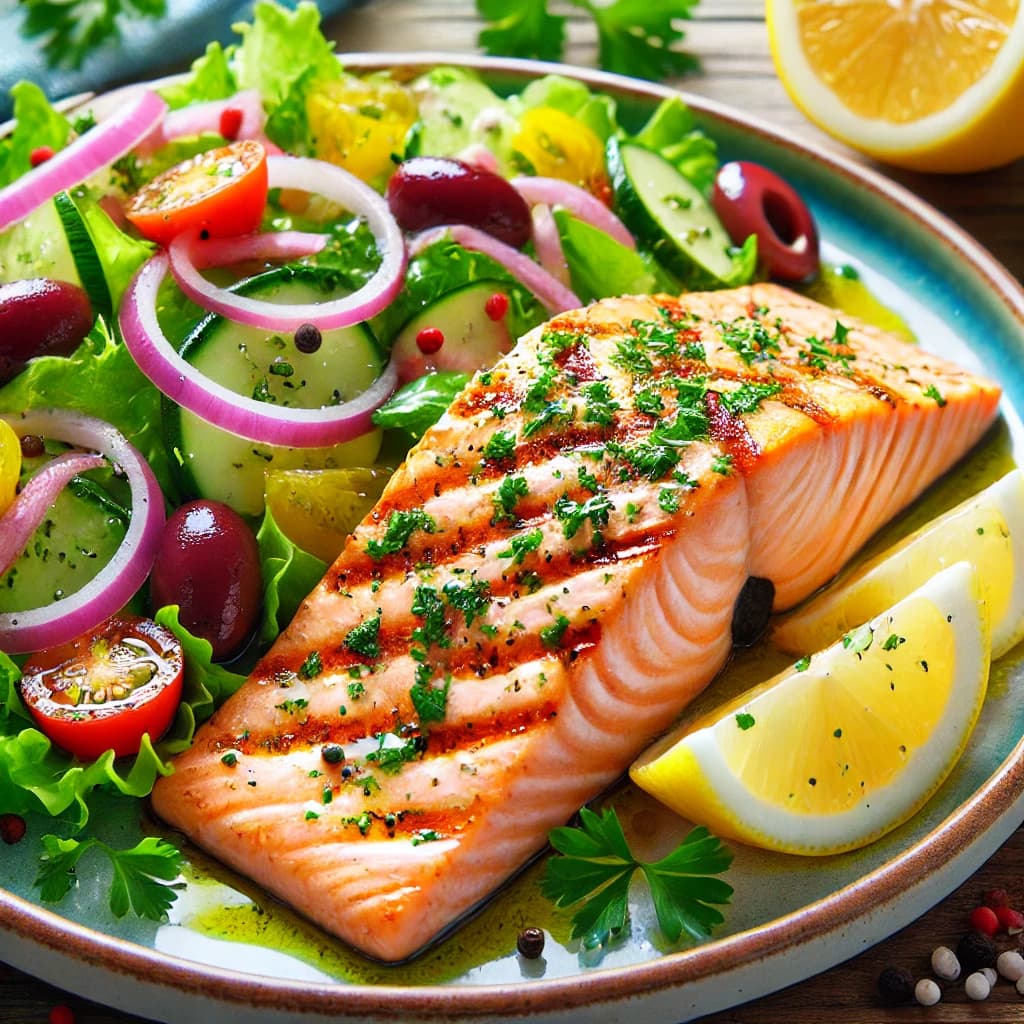Mediterranean Diet Made Easy: 7 Simple Steps to Get Started
Mediterranean Diet for Beginners: The Mediterranean diet is renowned for its delicious and healthful approach to eating. Rooted in the traditional culinary practices of countries surrounding the Mediterranean Sea, this diet emphasizes the consumption of whole, nutrient-rich foods that promote overall well-being. The Mediterranean diet offers numerous health benefits, focusing on fresh vegetables, fruits, whole grains, healthy fats like olive oil, and lean proteins such as fish. Let’s explore the Mediterranean diet for beginners, how to get started, and debunk some common misconceptions about it. For a more detailed look at the article: “The Ultimate Guide to Mediterranean Cooking For Beginners“.
What is the Mediterranean Diet?

The Mediterranean diet is a way of eating inspired by the traditional dietary patterns of countries bordering the Mediterranean Sea, such as Greece, Italy, and Spain. This diet emphasizes consuming fruits, vegetables, whole grains, legumes, nuts, and seeds. It is renowned for its health benefits, including improved heart health, weight management, diabetes prevention, longevity, and enhanced cognitive function.
Mediterranean Diet For Beginners 7 Steps
Starting a Mediterranean diet is simple and sustainable. Here are some 7 steps for the Mediterranean diet for beginners:
- Incorporate More Fruits and Vegetables: Aim to fill half of your plate with a variety of colorful fruits and vegetables. They provide essential vitamins, minerals, and antioxidants.
- Choose Whole Grains: Replace refined grains with whole grains, such as brown rice, quinoa, and whole-wheat pasta. These are rich in fiber and nutrients.
- Include Legumes: Beans, lentils, and chickpeas are great plant-based protein and fiber sources. They can be added to salads, soups, and stews.
- Add Nuts and Seeds: Snack on nuts and seeds or sprinkle them on salads and yogurt for added crunch and nutrition.
- Use Olive Oil: Replace butter and other fats with extra virgin olive oil, rich in monounsaturated fats and antioxidants.
- Eat Fish Regularly: Aim to eat fish, especially fatty fish like salmon, mackerel, and sardines, at least twice a week for their omega-3 fatty acids.
- Flavor with Herbs and Spices: Use herbs like basil and oregano and spices like garlic to add flavor without extra salt.

30-day Mediterranean diet meal plan for Beginners
In this 30-day Mediterranean diet meal plan, you’ll discover how to incorporate these wholesome ingredients into your daily meals, creating satisfying and nourishing dishes that support overall well-being.
Misconceptions About the Mediterranean Diet
- Believing the Mediterranean diet is only about eating pasta and bread: While pasta and bread can be part of the diet, they are consumed in moderation and often made from whole grains.
- Thinking that all fats are excluded from the Mediterranean diet: The Mediterranean diet includes healthy fats, particularly from olive oil, nuts, and fish.
- Assuming the Mediterranean diet is expensive to follow: Many staples of the Mediterranean diet, such as legumes, whole grains, and seasonal produce, are affordable.
- Mistaking the Mediterranean diet for a short-term fad diet: This diet is a long-term, sustainable way of eating rather than a quick fix.
- Believing that the Mediterranean diet doesn’t include any meat: While the diet emphasizes plant-based foods, it does include moderate amounts of poultry, lean meats, and dairy.
Key Ingredients in the Mediterranean Diet
- Olive Oil: A primary source of healthy fat, used in cooking and dressings.
- Fish: A rich source of omega-3 fatty acids, important for heart health.
- Tomatoes: Used in many dishes, providing vitamins and antioxidants.
- Garlic: Adds flavor and has numerous health benefits.
- Herbs (Basil, Oregano): Enhance flavor and nutrition without added salt.
- Health Benefits of the Mediterranean Diet
- Heart Health: The diet’s focus on healthy fats, whole grains, and fish contributes to lower cholesterol levels and reduced risk of heart disease.
- Weight Management: High in fiber and healthy fats, the diet helps in maintaining a healthy weight.
- Diabetes Prevention: Whole grains, legumes, and healthy fats help in managing blood sugar levels.
- Longevity: The diet’s emphasis on whole, nutrient-rich foods is associated with longer life expectancy.
- Cognitive Function: Nutrients from fruits, vegetables, and fish support brain health and may reduce the risk of cognitive decline.
Mediterranean Diet For Beginners Related Questions
What foods are included in the Mediterranean diet? The Mediterranean diet includes fruits, vegetables, whole grains, legumes, nuts and seeds, fish, and healthy fats like olive oil.
How does the Mediterranean diet benefit heart health? The diet promotes heart health through its emphasis on healthy fats, fiber-rich foods, and omega-3 fatty acids from fish, which help reduce cholesterol and inflammation.
Can the Mediterranean diet help with weight loss? Yes, the diet’s focus on nutrient-dense, high-fiber foods helps in maintaining a healthy weight and can aid in weight loss.
What are some typical Mediterranean diet recipes? Some typical recipes include Greek salad, ratatouille, hummus, grilled fish with herbs, and whole-grain pasta with tomato and garlic sauce.













